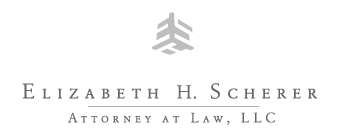Bankruptcy
Personal Bankruptcy
Bankruptcy is a difficult decision for most people. It can be a frightening event, but know that most people that file bankruptcy have no other option. People from different walks of life and in many different circumstances face personal bankruptcy out of necessity. Contrary to popular belief, most people are not just trying to avoid paying their debts. Oftentimes, it is a result of a financial crisis or an event that forces one into bankruptcy, such as medical bills, divorce, or loss of a job or business.
Bankruptcy law provides relief to reorganize or eliminate your debts. Reorganization is an option in which all or part of the debts are consolidated and repaid over a scheduled repayment period. In some circumstances, bankruptcy provides those, who are unable to repay their debts, with the option to completely wipe their slate clean, eliminate their debts, and have a fresh start.
There is much confusion regarding bankruptcy eligibility. The Bankruptcy Abuse Prevention and Consumer Protection Act of 2005 utilizes new rules. These new rules take into account one's median income and living expenses, which are specific to the county within your state; therefore these new rules make it more difficult to discharge some debts. It is imperative to have an attorney who understands the new rules, who can skillfully navigate through the means test utilizing your information most effectively, and who can determine the very best course of action for you while protecting the maximum allowable exempted assets. Attorney Elizabeth Scherer will skillfully guide you through the bankruptcy process, whether Chapter 7 or Chapter 13). Contact our office for a free consultation.
Do I qualify for Bankruptcy?
The two types of personal bankruptcies are Chapter 7 and Chapter 13, both named after the title of the U.S. Bankruptcy Code under which they are organized. Whether you file for a Chapter 7 or a Chapter 13 bankruptcy depends primarily on your financial ability to pay off debts. We use a "Means Test" to determine the option for which you may qualify. The means test takes into consideration several factors, which include but are not limited to, your monthly income, the amount and type of your debts, as well as other specific circumstances of your financial situation.
In Chapter 7 bankruptcy, the bankruptcy court discharges most of the debts you owe. In exchange for this discharge, the bankruptcy trustee can take any property you own that is not exempt and liquidate it to distribute the proceeds to your creditors. Most people, who file Chapter 7, have little or no non-exempt property or equity. There are allowable exemptions, which include but are not limited to, personal furniture, clothing, and autos. You select the property you are eligible to keep from a list of state exemptions.
In Chapter 13 bankruptcy, you file a repayment plan with the bankruptcy court to pay back all or a portion of your debts over time, typically 3 to 5 years. The amount you will have to repay depends on how much you earn, the amount and types of debt you owe, and how much property you own. You will be subject to a budget that the bankruptcy trustee sets. Most people, who file a Chapter 13 bankruptcy, are behind in their mortgage or car payments and need additional time to catch up on their payments.
Which type of Bankruptcy do I qualify for?
First, we will work with the client to determine if bankruptcy is the best solution for his or her particular situation. We will take a close look at the client's special circumstances, along with his or her annual income, potential future income, family size, and types and amounts of debts to determine if the client qualifies for a Chapter 7 or Chapter 13 bankruptcy. If you are dealing with collection companies and a potential foreclosure, or other legal action, we can help you take immediate action to protect yourself under the bankruptcy laws.
We will help you determine, before you file, whether you will meet the means test. If you qualify for a Chapter 7 liquidation, we will work with you to identify those debts that cannot be discharged, as well as those assets that are exempt from sale. If you do not qualify for Chapter 7 liquidation, we will devise a Chapter 13 reorganization plan, which will include your proposed budget and methods to deal with your secured creditors. Contact me for a free initial consultation.
Bankruptcy and Foreclosure
If you are at risk of losing your home from foreclosure, bankruptcy may be a short or long term option to staying in your home. You may qualify to keep your home in both a Chapter 13 and Chapter 7 bankruptcy. We will assess your unique situation, evaluate your assets and debts, and utilize the bankruptcy means test to determine your very best outcome.
